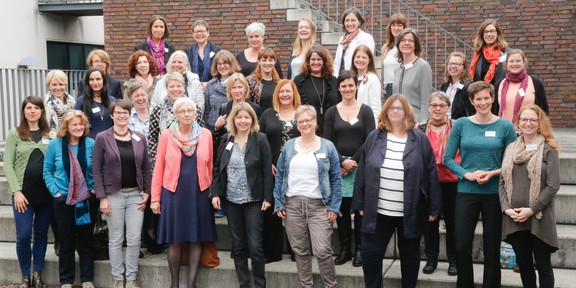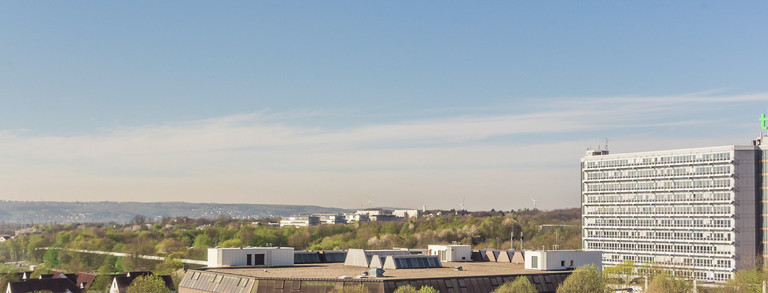What exactly is LaKof NRW?

Members of Lakof NRW are the universities and university hospitals named in the NRW Higher Education Act. They are represented by the Equal Opportunities Officers. Each member has the right to participate in events, elections and votes within the framework of the law and the statutory provisions of LaKof NRW. A spokesperson committee of up to four members represents LaKof NRW internally and externally in accordance with the resolutions of the general meeting.
In order to realize the goal of gender equality, LaKof NRW cooperates with various political institutions, committees and bodies in the state and advises them on gender equality policy issues. LaKof NRW intervenes in the general university and state policy debate with statements and concepts.
LaKof Coordination Office: The linchpin of the joint equality work of NRW universities
In addition to the spokespersons, the LaKof NRW coordination office, based at RWTH Aachen University, plays a central role. Its tasks include establishing and maintaining contacts with scientific organizations, politics, associations, networks and the media as well as systematizing best practice models for the promotion of gender equality at universities in the state of NRW. The coordination office also ensures the flow of information between the spokespersons and the members of LaKof NRW. An important element of this is the general meeting, which takes place approximately twice a year. As a rule, it follows a standardized structure in which, after a welcoming address by the organizing university, information is provided and discussed on a current topic of higher education policy relating to gender equality. This part is open to the public. Internal LaKof NRW matters are discussed in a subsequent non-public session.
LaKof NRW as a guest at TU Dortmund University
In 2018, the spring conference took place at TU Dortmund University's Erich-Brost-Haus. Prof. Dr. Insa Melle, Vice-President Studies, outlined selected development data from TU Dortmund University in her welcoming address. She emphasized the upward trend in student numbers: Within 10 years, there has been an increase from 22,000 to 34,600, including 45.2% female students. At professorship level, TU Dortmund University achieves a female quota of 25.2%, which is slightly above average compared to other universities in NRW. Prof. Dr. Melle praised the Women Professors Program III, the central topic of the General Assembly, as extremely important for making further progress in recruiting female professors.
The central Equal Opportunities Officer at TU Dortmund University, Martina Stackelbeck, used the university's 50th anniversary as an opportunity to take a look back at the past in her welcoming speech. Some women's policy highlights in the history of the University of Dortmund are:
- The first female professor at the University of Dortmund was Erika Spiegel, who was appointed to a chair in Sociological Foundations of Spatial Planning in 1968.
- In 1977, the first women's archive in the Federal Republic of Germany was founded at the University of Dortmund; it has been integrated into the university library since 2004.
- The first Equal Opportunities Officer at the University of Dortmund began her work 30 years ago.
- With Prof.'in Dr. Dr. h.c. Ursula Gather has been the first female Rector since 2008.
The Central Equal Opportunities Officer described the DFG's research-oriented equal opportunities standards and the funding for gender-equitable universities from the Ministry of Science and Culture NRW as particularly effective in equal opportunities work at universities.
In the further course of the event, the Women Professors Program III was on the agenda.





